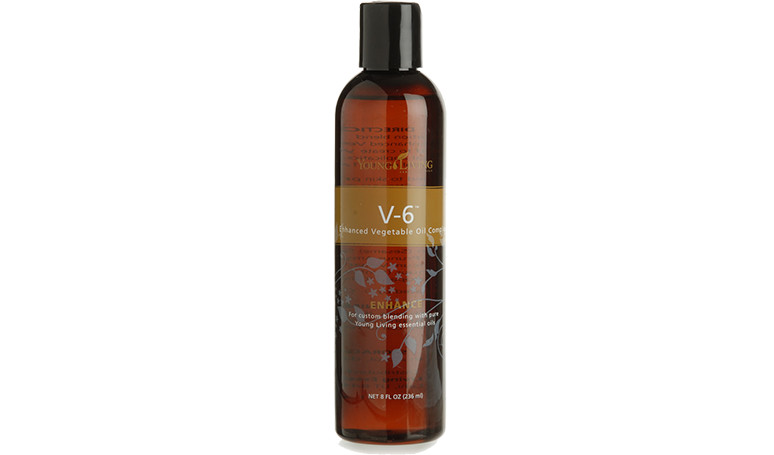🌻May Promos are HERE🌻
....and they are all about that SELF-care!!! Self-care for Mother’s Day, self-care for ditching your products with harsh chemicals out for some charcoal bar soap and AromaBright Toothpaste!!

Carrier oils are a big part of any successful essential oil experience, yet they are often overlooked or misunderstood.
What are carrier oils?
Carrier oils are stable oils that are an excellent medium of the dilution and application of essential oils. These oils are naturally derived from vegetarian sources and have a neutral smell.
Why are carrier oils used?
By their nature, essential oils are volatile. They have a strong scent and evaporate rapidly. This can often make them too strong to apply undiluted. Carrier oils are the opposite, slow to evaporate and they do not have a strong aroma.
Which carrier oil should I use?
The choice of carrier oil is usually a personal preference. Because carrier oils can vary widely in their characteristics, you should mix and match until you find the one that is just right for you!
Carrier oils can also be blended, which is great for adjusting the oil to fit your preferences. One of my favorite carrier oil blends is V-6 from Young Living.
Below is a list of some of the more popular carrier oils.
V-6*
- A proprietary Young Living formula combining fractionated coconut oil, grapeseed oil, sweet almond oil, wheat germ oil (contains a lot of vitamin E and acts as a natural preservative), sunflower oil, and olive oil
- Moisturizes and nourishes the skin
- An excellent carrier oil for all your best essential oils and applications
Grapeseed Oil
- Light and thin consistency
- Well suited for massages; leaves a light glossy film over the skin
- Moisturizing
- High in linoleic acid
- Relatively short shelf life
Sweet Almond Oil*
- Slightly sweet, nutty aroma
- Medium consistency
- Absorbs relatively quickly; leaves a slight hint of oil on the skin
- Rich in vitamin E and oleic acid
- Moisturizing
- Good all-purpose carrier oil
Jojoba Oil
- Slightly nutty aroma
- Medium consistency
- Superior, non-greasy absorption, similar to the skin’s natural oils
- Moisturizing for skin and hair
- Long shelf life
Olive Oil
- Popular, easy-to-find oil used in both topical and culinary applications
- Thicker consistency; leaves an oily feel on the skin
- Stronger aroma
- Good source of oleic acid (omega fatty acid)
- Relatively short shelf life
Fractionated Coconut Oil
- Unlike coconut oil, fractionated coconut oil is liquid at room temperature
- No noticeable aroma
- Absorbs well; leaves skin feeling silky and moisturized; non-greasy
- High in essential fatty acids
- Long shelf life
Coconut Oil
- Solid at room temperature
- Distinct coconut aroma
- Solid white color
- Leaves a moisturizing, oily feeling layer on top of the skin
- Long shelf life
Cocoa Butter
- Solid and difficult to work with at room temperature
- Best used when melted and blended with other carrier oils
- Sweet, chocolate aroma
Shea Butter
- Solid at room temperature
- Nutty aroma
- Cream colored
- Moisturizing to skin and hair; leaves behind a moisturizing, waxy-feeling layer
Carrier oils help you get the most out of your essential oils. Give them a try today!
*Caution: May cause a reaction to those with nut allergies.
You’ve decided that you would like to get healthier, get rid of the toxic chemicals in your home or maybe you are just curious about using natural remedies for common ailments like the cold and flu. If you can relate to any of these scenarios, essential oils might be just what you need.
Your First Hurdle
Confusion can quickly set in once you realize just how many different kinds of oils are available. To add fuel to the fire, there are also many different brands (and they are not all equal in quality), various ways to use them, etc. You get the idea.
Every novice essential oil user has experienced this type of confusion and overwhelming but there is no need to worry. A little Essential Oil 101 will get you started off on the right path, so let’s jump right in.
What are Essential Oils Exactly?
Essential oils are fragrant liquid oils that are derived from plants that can be used in multiple ways. Some of these ways include, but are not limited to: treating physical ailments, creating a perfume, easing the symptoms of anxiety and depression, making your own cleaning products, etc. They are definitely very versatile when you consider the many ways they can be used.
Which Oils to Start With
There is no need to break the bank when getting started with essential oils. You might think otherwise only because there are so many to choose from and you want to buy them all. Start out with the basics and later you can expand your collection by experimenting with other oils. Here are five of the most popular ones that you will want to have on hand:
Chamomile – Considered to be one of the safest essential oils, Chamomile is also known for its calming and anti-inflammatory benefits. Allergy sufferers find relief during allergy season when using it in a diffuser.
Lavender – This is a must have oil. Lavender oil provides a myriad of calming benefits that include easing stress and tension and the ability to provide a more restful night’s sleep. Additionally, it is widely used for soothing irritated skin and as an ingredient in many skincare products.
Peppermint – Peppermint essential oil is known to be antibacterial, antiviral, anti-inflammatory, insecticidal and antispasmodic. Due to its menthol compounds, it provides a cooling effect when applied topically and because it is such a powerful oil, it should only be used when mixed with a carrier oil.
It is also good for treating bad breath, sore muscles, digestive problems, headaches and respiratory issues among a multitude of other health issues.
Lemon – Lemon essential oil is especially popular and rightfully so. It has a variety of uses along with a pleasing citrusy smell. For DIY home cleaning products, lemon essential oil is a must. It contains strong disinfecting and cleansing agents that make it perfect for washing counters, sinks, floors, etc. When added to olive oil, it will give wood furniture a rich shine.
Lemon essential oil is also good for treating acne, yeast infections and as a mood elevator. It also makes a great astringent. Due to its potency, never apply directly to the skin. It should always be combined with a carrier oil, water or another appropriate agent.
Rosemary - Rosemary essential oil works well as both an anti-oxidant and anti-inflammatory. Herbalists recommend rosemary essential oil for relief of muscle and nerve pain as well as for its use in detoxifying the liver, healing the gallbladder, and for improving memory function.
When combined with a carrier oil to use in massage applications, rosemary oil delivers mental clarity, relieves fatigue and act as a mood enhancer.
These are some of the most commonly used essential oils. There are many others that you can use to get started with as well. Through study and experimentation, you will find the ones that you like the most, how you prefer to use them, what other oils you like to combine, etc. Essential oils are one of those things that you will want to study on an ongoing basis.
The most important thing is that they will help to improve your quality of life and health, especially when combined with other health care treatments.


